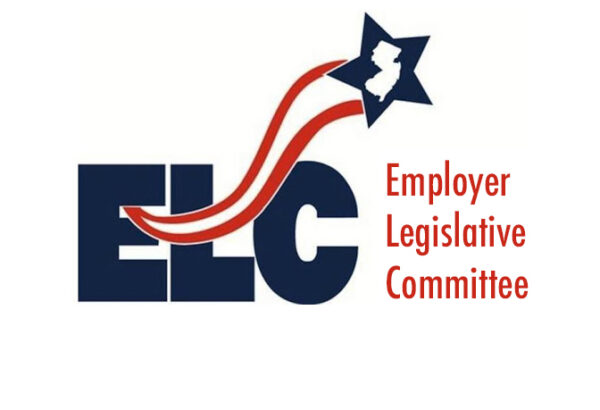
Join a Policy Committee
By joining a NJBIA Policy Committee, you are a member of a select group of members from many different businesses who share a common interest in a particular area of concern.
Christopher “Chris” Emigholz is the Chief Government Affairs Officer of the New Jersey Business & Industry Association (NJBIA), the largest, most impactful statewide organization representing New Jersey businesses.
Before his promotion to Chief Government Affairs Officer, Emigholz served as NJBIA’s vice president of Government Affairs covering taxation, budget and economic development. Prior to coming to NJBIA, Emigholz worked in state government for 10 years. He was a budget director for the State Senate Republican Office for eight years and directed education policy and legislative affairs in the New Jersey Department of Education prior to that. This is his second stint at NJBIA, having served for years as the association’s workforce development and education lobbyist earlier in his career. He was also a teacher through the Teach For America program in a high school in Atlanta, Georgia, and community liaison/volunteer coordinator for an elementary school in Baltimore City.
Emigholz earned a Master of Public Policy degree from Edward J. Bloustein School of Planning and Public Policy at Rutgers University and a Bachelor of Arts degree from Johns Hopkins University. He currently lives in Robbinsville, New Jersey with his wife and three children. Emigholz is active in the community, having served on the school board, the economic development advisory council and currently volunteering as a youth sports coach.
Ray Cantor is Deputy Chief Government Affairs Officer of the New Jersey Business & Industry Association (NJBIA),the largest, most impactful statewide organization representing New Jersey businesses.
Cantor, an attorney whose career has included high-level positions in the legislative and executive branches of government, a former assistant commissioner and, later, chief adviser to the commissioner of the Department of Environmental Protection (DEP), leads NJBIA’s advocacy efforts on environmental and energy matters affecting the business community.
At DEP, Cantor oversaw the offices of Legal Affairs, Dispute Resolution, and Economic Analysis in addition to advising the DEP commissioner on policy, legal, management, and economic matters. Cantor was also responsible for policy formulation related to all DEP regulations, including site remediation, NRD, air quality, water regulation, and land-use management.
A graduate of New York Law School, Cantor began his career working at the state’s Office of Legislative Services as senior counsel in the Environment, Energy, & Natural Resources section. He later served as the Assistant Commissioner of Land Use Management & Compliance at DEP until 2002 and also worked as a project consultant for the U.S. Environmental Protection Agency.
Cantor’s experience as a business lobbyist includes five years as director of Government Affairs for the Medical Society of New Jersey and then executive director of the New Jersey Apartment Association. He returned to the state DEP in 2010, where he served as chief advisor to DEP Commissioner Bob Martin for eight years.
Ford, who previously served as director of government relations for the New Jersey State Funeral Directors Association (NJSFDA), brings valuable experience as a skilled researcher, legislative policy analyst and public speaker to her new role at NJBIA.
“Althea is well-respected by the business community, and the balanced, experienced and thoughtful approach she brings to advocating for New Jersey businesses will be a great asset as we expand the NJBIA Government Affairs team,” Siekerka said.
The NJBIA Government Affairs team also includes Chief Government Affairs Officer Christopher Emigholz, Deputy Chief Government Affairs Officer Ray Cantor, Vice President of Government Affairs Alexis Bailey, and Director of Economic Policy Research Kyle Sullender.
A New Jersey native and Edison resident, Ford began working for the not-for-profit trade organization NJSFDA in 2012 as a government and external relations representative before her promotion to director of government relations in 2018.
Prior to joining NJSFDA, Ford worked in higher education administration at Columbia University’s Teachers College in New York City.
Before moving back to New Jersey, Ford was an executive assistant to Tennessee State Senate Speaker Pro Tem Rosalind Kurita, managing two legislative and district offices.
Ford is a graduate of Vanderbilt University and earned her master’s degree in politics and education from the Teachers College at Columbia University in 2010. She completed the New Leaders Council–New Jersey (NLC-NJ) Fellowship Program in 2012 and served on its executive board.
Kyle Sullender is Director of Economic Policy Research for the New Jersey Business & Industry Association (NJBIA), the largest, most impactful statewide organization representing New Jersey businesses.
Sullender also serves as the Executive Director of Focus NJ, an independent research nonprofit conducting timely, innovative, nonpartisan economic and workforce research to support sound public policy in New Jersey.
Prior to joining NJBIA, Sullender supported the Camden County Board of Commissioners, coordinating external affairs and media relations. Sullender earned his Master of Public Policy in 2019 from the Edward J. Bloustein School of Planning and Public Policy at Rutgers University – New Brunswick. He also graduated summa cum laude from Rowan University in 2017 with bachelor’s degrees in journalism and philosophy.
Sullender was a Class of 2019 Graduate Fellow at the Eagleton Institute of Politics, and is an active member of the Eagleton Alumni Committee.
Elissa Frank, previously served as the New Jersey State Director of the Humane Society of the United States, will lead NJBIA’s Government Affairs team on labor and other issues.
In addition to her valuable experience at HSUS-New Jersey, Frank, a Morris Plains resident, worked as an associate and law clerk at the Hackensack-based firm of Kates Nussman Ellis Farhi & Earle from 2019 through 2021.
Frank also previously worked as a research assistant and law clerk at Rutgers Law School and Sills Cummis & Gross, respectively, in addition to serving as the director of Legislative Affairs for Assemblyman Reed Gusciora (District 15) from 2016-2018.
Frank is a 2021 graduate of Rutgers Law School in Newark, where she also was the editor-in-chief of the Rutgers Law Record.
NJBIA Government Affairs experts advocate for policies that will grow and create jobs and fight to protect businesses from policies that could negatively impact them. This section provides in-depth information about pending legislation that may impact your business. Keep up-to-date on the latest legislative and regulatory news. NJBIA’s government affairs experts are the premier NJ business advocates.
As the largest and most influential statewide employer association in the country, the New Jersey Business & Industry Association exists to advance the competitive excellence and financial success of our members and the more than one million people they employ.
Click on our Team photos to see bios and contact email.
By joining a NJBIA Policy Committee, you are a member of a select group of members from many different businesses who share a common interest in a particular area of concern.

There is no better way to meet with your legislators, network with your colleagues, and learn about issues affecting your business than to attend your local Employer Legislative Committee (ELC) meetings.
The ELCs, established by NJBIA in 1959, are independent, local organizations representing all 21 counties. ELCs meet regularly for breakfast or lunch. These meetings take no longer than 90 minutes. At each meeting, legislators, cabinet members or local officials will discuss important issues pertinent to business. You will also receive a briefing from one of NJBIA’s government affairs experts on legislative and regulatory issues affecting employers.